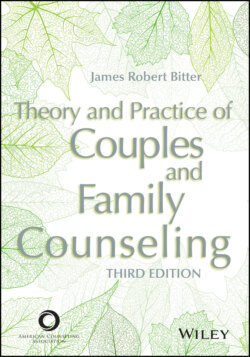Читать книгу Theory and Practice of Couples and Family Counseling - James Robert Bitter - Страница 99
A Virtue Ethics Model
ОглавлениеMost professional codes are based on principle ethics. Except for a few aspirational statements in some codes, there is very little in the documents themselves that pertains to virtue ethics. As we have noted before, virtue ethics requires the professional to look inward and make space for a self-reflective process. Attending to oneself in ethical decision-making opens the door for the emotional experiences of empathy and compassion. Cohen and Cohen (1999) viewed the role of emotion in decision-making as a legitimate component of a “morally good motive” and noted that “moral action is no mere affair of rules but is instead infused with emotion, human relatedness, and sensitivity to the nuances of individual context” (p. 24). A decision-making process based on virtue ethics would include many of the following questions:
What is my gut telling me about the family’s situation?
If I were in the parents’ shoes, what might I feel or want to do? How would I answer the same question for the child, extended family members, family friends, or the community?
How important is my own spiritual or religious value system to me, and how hard might I fight to have it respected? Does this tell me anything about what the family is experiencing? How open am I to accepting that my view of the right choice might be different from the view of the right choice held by various family members?
How open am I to accepting that my view might be different from the state’s view? Am I willing to be courageous and stand up for my view or for the clients’ views if they are different from what the law requires?
Do I agree with what the codes suggest I do in this situation? Do the codes help me to be the preferred family practitioner I want to be?
Which possible courses of action best fit my preferred view of myself as a family practitioner? Which personal and professional values are activated in me as I face this dilemma: caring, compassion, judgment, courage, humility, connectedness? Other values or virtues?
Which choice am I willing to live with? How ready am I to make a choice and live with the uncertainty of its outcome?
When infusing your ethical decision-making with virtue ethics, you bring yourself deeply into the ethical decision-making process. How central to the decision-making process are you willing to place yourself as a family practitioner? Is it possible to be too central? What would that look like for you?
